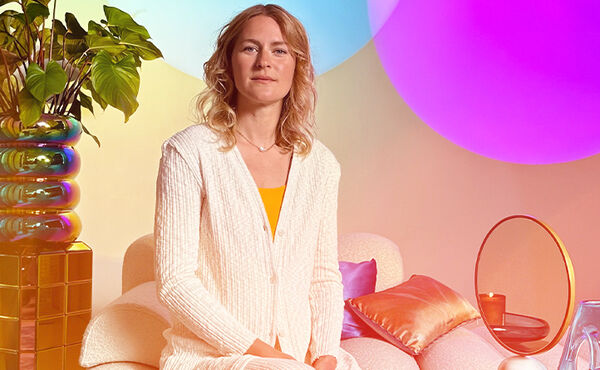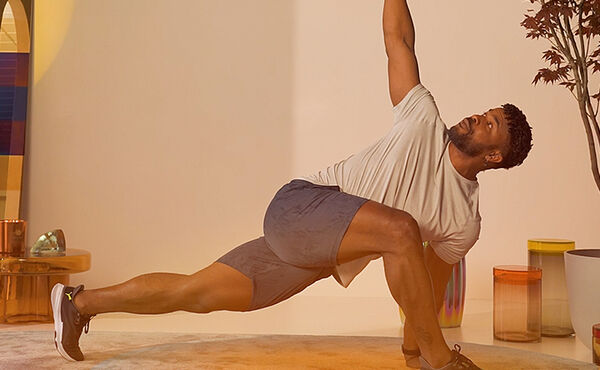Our body, mind and soul are all united by one invisible force: energy. Here we look at the different energy forces and why they are equally important but so much more effective when balanced
When you think about ‘what is energy?’, many iterations probably spring to mind. And that’s exactly what should happen, because as Albert Einstein said, “everything is energy and that’s all there is to it”. There’s no one set definition of what energy is (although physicists would argue it is clearly defined by the equation: energy = mass multiplied by the speed of light squared), but when you start to break it down there are some fairly obvious and universal energy facets. Arguably, on the most literal level, there is physical energy; the power you need to get through the day achieved through foods that fuel, exercise and sleep to reboot and recuperate energy reserves. Then there’s mental energy; the brain power required to help you make the thousands of decisions you need to every day. To set and achieve goals and to create a constant healthy mental load. And then there’s spiritual energy; arguably the more abstract form of energy but present in every religion, the world and environment around us, and within ourselves.
What makes energy unique, aside from its many different formats, is that it is infinite. While we’re alive, we have a never-ending supply of it and we have the capability to increase our energy levels. By exercising more frequently and eating the right foods, stamina will improve. We can open our minds to higher planes of spiritual energy should we choose to. And while many of us may think we have a fixed level of mental energy, by changing our habits we can use our mental energy more efficiently to feel less depleted and more productive.
Keep scrolling to discover why, although the concept of energy is so multi-faceted, it is the one element that unites us all.
What is physical energy?
Physical energy is the movement of your body to create action, whether that’s exercise, labour or simply moving from A to B. It’s quantifiable and fairly objective. And there’s a reason that physical energy is so closely linked with mental energy. When we expend physical energy, it increases the blood supply to the brain which then helps with concentration and memory. Exercise also releases feel-good hormones; endorphins, which are the body’s natural painkiller and mood elevator.
How much physical energy you use needs careful monitoring as fitness trainer Alcides Jackson explains: “There is a downside to endorphins. They make us feel so great that some people seek out a ‘shower of endorphins’ and do too much. It’s really important to play it smart and make sure you’re keeping your energy levels balanced. Everyone’s baseline level of energy is different but when it comes to using your energy to exercise as a rule, 15 minutes minimum to 75 minutes maximum is plenty. And five days a week is more than enough.” He also doesn’t recommend long workout sessions either. “Two hours of constant exercise is too much. You are depleting your body of too much energy. Your body will crash and it will need more time to recover compared with someone who did less but can go again sooner.”
Physical energy also comes with a side of irony because when you’re feeling tired, expending energy is the best way to get energised. “This is because it kickstarts the brain’s neurotransmitters and gets your endorphins up again,” says Jackson. So, while doing some exercise may feel like the last thing you want to do, it is the best way. But it doesn’t have to be gruelling. “Choose something slightly lower impact like going for a walk or a yoga class. That’s not to say you can't do something more high impact like a HIIT workout but keep it short,” he advises.

What is mental energy?
Mental energy is equally as objective and quantifiable as physical energy, but because it’s happening in our minds it can be harder to define. However, it is a very tangible form of energy and an important one, as Aristotle said, “the energy of the mind is the essence of life”. Increases and decreases of mental energy can be measured in our brains in a few different ways and it’s these sorts of measurements that have shown that our brains are constantly moving and changing shape. Every time we make a decision, process a thought or learn something new, neurons in the brain are activated and energised into making new connections. Similarly, research has shown that when we’re depressed, unwell or as we get older the energy connection can degrade and fade away.
And even though we have a never-ending supply of mental energy, cognitive fatigue is also palpable. “Mental energy can feel like a limited resource to lots of people. This is because they’re not in control of it so they’re not spending it in a way that serves them or is helpful,” explains life and clarity coach, Victoria Joy. “When we feel low on mental energy, making choices seems harder and you don’t do things with as much intention. Conversely, the more energy we have the better choices we can make, the easier decisions will feel, and the more motivated we will be to act in line with where we want to be or the kind of life we want to lead.”
Joy says the key to controlling your mental energy is about forming positive habits that put you in control of how you expend your mental energy.
What is spiritual energy?
Regardless of whether you have a religion or believe in a ‘higher being’, there is undoubtedly another source of energy that comes from somewhere beyond your physical body and this is what most recognise as spiritual energy. “Spiritual energy is the energy of life itself,” says spiritual teacher, Gabriel Gonsalves. “We can say the beginning of energy as we know it in our modern scientific world comes from the big bang. In one moment, something exploded into an infinite number of pieces and energy began. The big bang is the essence of life and the universe's energy source. But nobody really knows where this energy came from, we can’t find the centre of it. As so many spiritual texts say - it has no beginning and it has no end, which is why some people refer to this energy source as God. What is true, whatever you believe, is that there’s no place where spiritual energy is not.”
Spiritual energy is also frequently linked with intuition. It’s why some people can walk into a room and sense a specific emotion for the good or the bad. Gabriel explains further: “We are all energetic beings, our nervous system moves electrical impulses around our body and also has the ability to tune into the energy of the space and people around us. We give energy away to the people and environment around us and receive energy from those things too. Emotions are magnetic energy - whereas thoughts are electrical energy - which is why you can get that sense of being drawn to or repelled by someone. Of course, there are different degradations and everyone operates at lower or higher frequencies, which is why we have varying levels of being able to sense other energies at play around us.”
A sentiment that is shared in the practice of Reiki. “Reiki is about aligning and balancing the chakras in your body to align your energy,” explains Reiki healer, Natali Kelly. “As humans, we are all big balls of energy and because of that, it’s really important to be careful with the energy we emit as well as the energy we receive.” She believes, like Gabriel that we all have different levels of awareness of spiritual energy. “Often, we are not conditioned to be connected to our self and that makes it hard to identify with the energy around us. But being able to channel your spiritual energy will help you find balance, enhance your ability to emit positive energy and also attract what you want from life and aid with manifesting your goals.”
3 tips to kickstart your day with energy
Front-load your day
“Tackle the things that require the most focus and concentration as soon as you can at the start of the day. This is when your brain is functioning at its best.” And is nothing to do with whether you are a night owl or an early bird, it’s been proven that adult brains function at their optimum energy levels in the morning. “Get that big job or awkward conversation dealt with and leave any tasks that you can do on autopilot for the afternoon,” advises Joy.
Smile more
“Smiling activates tiny molecules in your brain that are designed to fend off stress,” explains Kelly. “These molecules facilitate communication between neurons in your brain and release dopamine, endorphins, and serotonin,” which are all happy hormones. “By smiling more your brain will hardwire the positive pattern over negative ones, and this energy transmits to those around us.”
Get up and get going
“On the whole, the best time to exercise is first thing in the morning. Your body should be rested from sleep and energy levels high. There’s also a lot of research to show that if you exercise in the morning, and even better if you can do it outside in natural light, will improve your sleep that night. Which then has the knock-on effect of being more likely to be consistent with exercise,” says Jackson.
This article is part of our energy masterclass, to help you fill your life with positive energy and unlock your full potential. For a more positive outlook on life, our energy masterclass reveals everything you need to know to energise your body, mind and soul in small, easy, ways. Delve into our series of inspiring articles, videos and an exclusive soundscape - designed to help you feel more energised - that can be completed individually or as a 72-hour masterclass.
-
View full details99,00 zł
-
Promotions
View full details15,20 zł 19,00 zł -
View full details75,00 zł









